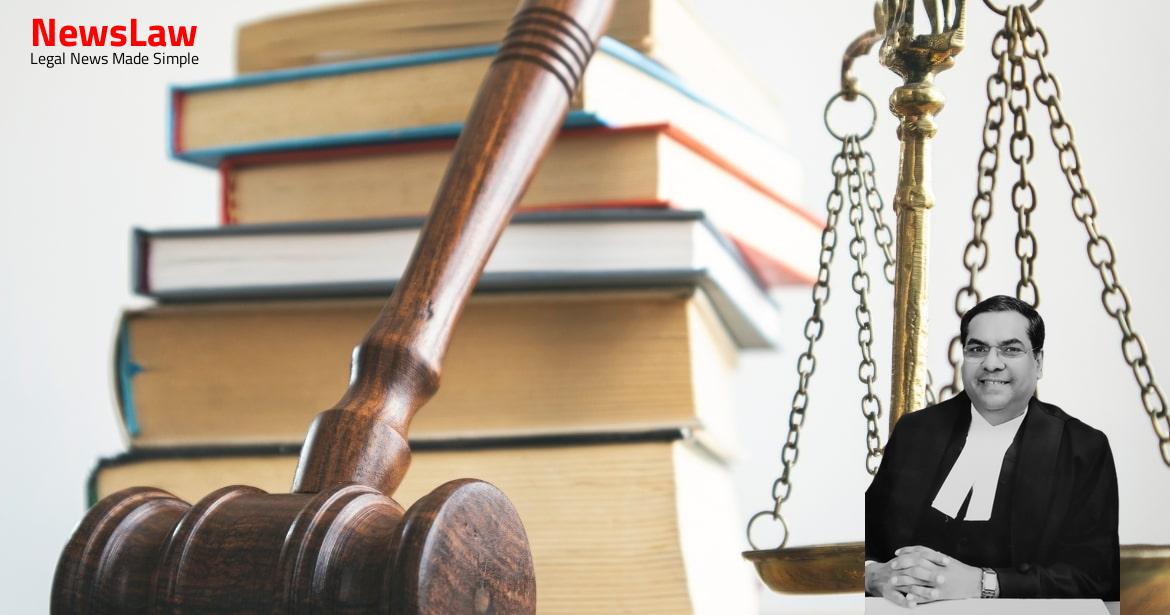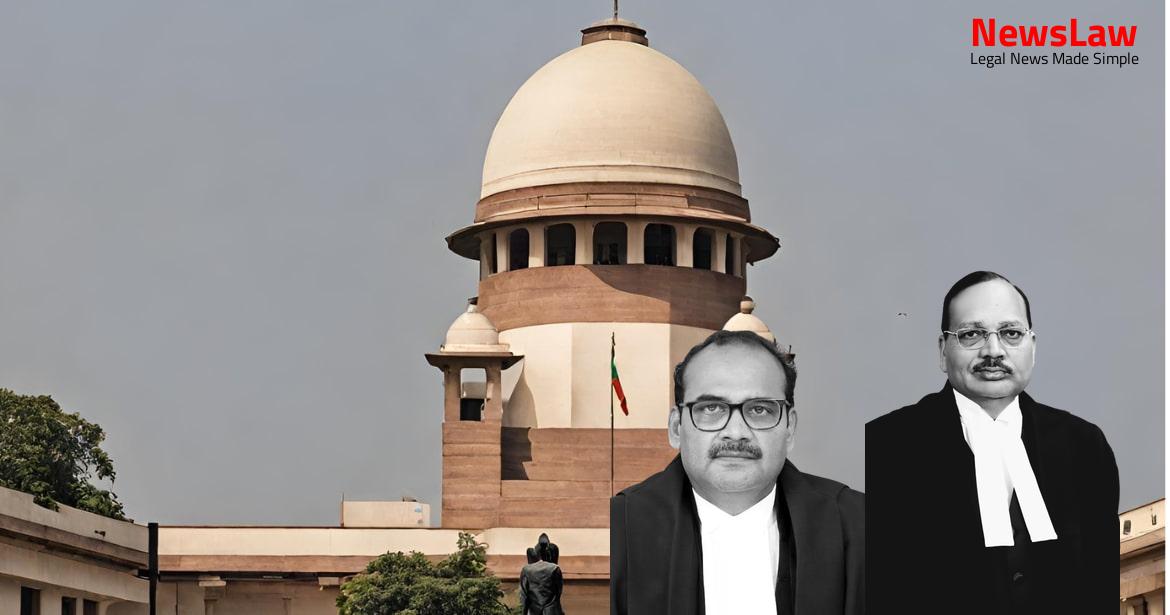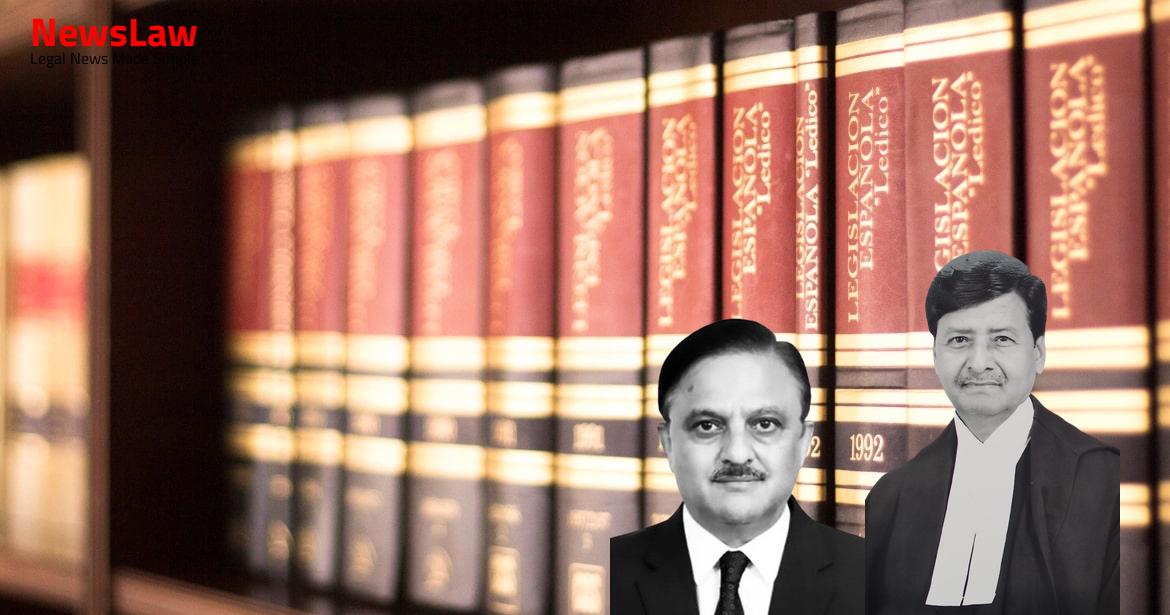The case delves into the complex legal framework surrounding tax deduction at source and Section 40(a)(ia) disallowance. Discover how the court’s analysis sheds light on the interpretation and application of these provisions under the Income Tax Act. Stay tuned for a detailed breakdown of the legal implications of this case.
Facts
- The appellant firm had entered into a contract with M/s Aditya Cement Limited for cement transportation.
- The appellant paid freight charges to truck operators/owners and charged a commission ranging from Rs. 100 to Rs. 250 per trip.
- The AO found that the appellant did not deduct tax at source when making payments to truck operators/owners exceeding Rs. 20,000.
- The AO considered the truck operators/owners as sub-contractors of the appellant due to the nature of their dealings.
- The AO referred to Circular No. 715 dated 08.08.1995 to establish a contract/sub-contract relationship between the appellant and truck operators as per Section 194C of the Income Tax Act.
- The AO held the appellant liable for deducting tax at source as per the provisions of Section 194C(3) of the Act.
- The appellant’s appeal before the Commissioner of Income Tax (Appeals) was dismissed, affirming the AO’s decision.
- The appellant’s responsibility for deducting tax at source was reiterated by the AO based on the dispatch register and payment details maintained by the appellant.
- Payments for transportation charges were made by M/s Grasim Industries Limited to the appellant after TDS deduction as per Form No. 16A.
- The High Court upheld the disallowance of payments to the tune of Rs. 57,11,625 under Section 40(a)(ia) due to the appellant’s failure to deduct tax at source.
- The N.P. rate declared this year is lower compared to the previous year.
- The CIT(A) dismissed the appeal based on the non-deduction of tax at source under Section 194C and Section 40(a)(ia).
- The AO disallowed deductions of payments made to truck operators/owners exceeding Rs. 20,000/- without TDS.
- The High Court dismissed the appeal citing Section 194C(2) and the lack of direct contract between truck owners and the cement factory.
- Total payments in Truck Freight Account were Rs. 1,37,71,206/- with total receipts of Rs. 1,43,90,632/-.
Also Read: Limitation Laws in Insolvency Proceedings
Issue
- Principal questions for determination in this appeal include the applicability of Section 194C of the Act to the case.
- Clarification needed on whether disallowance under Section 40(a)(ia) is limited to the amount ‘payable’ and not already paid.
- Reconsideration required on the decision in Palam Gas Service v. Commissioner of Income-Tax regarding Section 40(a)(ia).
- Discussion on whether the applicability of sub-clause (ia) of Section 40(a) of the Act is restricted to the financial year 2005-2006 or extends to prior years like 2004-2005.
- Evaluation of whether the payments in question were rightfully disallowed from deduction in the computation of total income.
Also Read: Legal Analysis in Joint Trials Error
Arguments
- Learned counsel for the appellant argues that Section 40(a)(ia) of the Act is limited to expenses that are booked during the year but remain payable, not expenses already paid.
- The appellant contends that the amendment to Section 40(a)(ia) by the Finance (No.2) Act, 2014, restricting disallowance to 30% of expenditure, should be applied retrospectively from the introduction of sub-clause (ia) to Section 40(a) of the Act.
- The counsel references the Bill introducing the Finance (No.2) Act of 2004, highlighting the use of ‘credited or paid’ in the bill versus ‘payable’ in the enacted provision.
- It is argued that if the legislature intended to disallow deductions for payments made and incurred, they would have used ‘paid,’ which is defined in the Act, whereas they used ‘payable,’ indicating a restriction of the provision’s coverage.
- The counsel also points out the use of ‘paid’ in the proviso to Section 40(a)(ia) to suggest that the main provision’s scope is limited to outstanding or payable amounts, not those already paid.
- Arguments are made against the applicability of Section 194C of the Act to the case at hand, citing the lack of a specific contract between the appellant and truck owners.
- Reference is made to a Delhi High Court case and a decision by the Supreme Court to support the contention that the appellant, acting as an intermediary, has no TDS liability under Section 194C.
- An attempt is made to distinguish between ‘payable’ and ‘paid’ based on the definition in the Act, emphasizing that disallowance under Section 40(a)(ia) applies only to amounts ‘payable.’
- The learned counsel for the revenue argued that the concurrent findings of fact by the authorities and ITAT, upheld by the High Court, do not show apparent perversity.
- It was further argued that the appellant’s failure to deduct tax at source when paying truck operators/owners under separate contracts/sub-contracts justifies the invocation of Section 40(a)(ia) of the Act.
- The counsel referenced the decision in Palam Gas Service to support the contention that the expression ‘payable’ in Section 40(a)(ia) covers both unpaid and paid amounts, a view rejected by the Court in the mentioned case.
- The counsel emphasized that the amendment to Section 40(a)(ia) by the Finance (No. 2) Act, 2004 applies directly to the assessment year 2005-2006, leading to the disallowance of payments due to failure in tax deduction.
- It was also highlighted that the remedial amendment of Section 40(a)(ia) by the Finance Act, 2010 was held to be retrospective in nature in the case of Commissioner of Income-Tax v. Calcutta Export Company.
- The appellant’s argument against treating the entire payment as income without provision for necessary expenses was countered by asserting the practical difficulties in deducting tax at source during payments to truck owners/operators.
Also Read: Dismissal of Contempt Petition: Legal Analysis
Analysis
- The law applicable in income tax matters is that in force in the assessment year unless otherwise stated or implied.
- The charge of income tax is with reference to any assessment year at such rate or rates as provided in any central enactment for the purpose, in respect of the total income of the previous year of any person.
- The expressions ‘previous year’ and ‘assessment year’ are defined in Sections 2(9) and 3 of the Act respectively.
- The case of Commissioner of Income-Tax, West Bengal v. Isthmian Steamship Lines established the principle that the law in force in the assessment year must be applied.
- The scheme of obligation to deduct tax at source and pay it to the Central Government must be adhered to, and failure to do so has consequences as stipulated in the Act.
- The amendment in Section 40(a)(ia) by the Finance Act aimed to enforce due compliance with TDS requirements.
- The proviso enacted in Section 40(a)(ia) provided relief to bonafide taxpayers who made deductions but failed to deposit within the prescribed time.
- The principle of retrospective operation applied to curative amendments made in the Act.
- The legislative intent behind the amendments to Section 40(a)(ia) was to mitigate hardships faced by taxpayers regarding TDS compliance.
- The amendment by the Finance Act, 2010 was specifically acknowledged for remedying unintended consequences and was held to be retrospective in operation from the date of insertion.
- The High Court’s observations regarding the implications of the amendments to Section 40(a)(ia) were endorsed, reaffirming the need for proper application of TDS regulations.
- Section 40 of the Income Tax Act, 1961 deals with ‘Amounts not deductible’ in computing income under the head ‘Profits and Gains of Business or Profession’.
- Under Section 40(a)(ia), certain amounts such as interest, commission, fees for professional services, etc., payable to residents on which tax is deductible at source under Chapter XVII-B and if not deducted or paid on time, are not allowed as deductions.
- The provision also states that if tax is deducted in a subsequent year or in the previous year but paid late, the sum shall be allowed as a deduction in the year in which the tax is paid.
- Section 200 of the Act imposes the duty on the person deducting tax to pay the sum deducted to the Central Government within the prescribed time.
- Failure to deduct or pay the tax as required by the Act results in the person being deemed as an assessee in default and liable to pay simple interest at 12% per annum.
- The provision also makes the tax amount and the interest a charge on all assets of the person or company responsible for deduction and payment.
- Explanation III under Section 43 defines ‘paid’ as actually paid or incurred according to the accounting method used for computing profits or gains.
- The section provides clarity on when certain deductions are not allowed if tax is not deducted or paid on time, ensuring compliance with TDS regulations and timely tax payments.
- The provision in question discussed is Section 40(a)(ia) of the Income-tax Act.
- The interpretation of the term ‘payable’ in this provision is crucial.
- The case law reference to P.M.S. Diesels and Ors v. CIT for a comprehensive understanding of the provision’s mandatory nature.
- Reference to Calcutta Export Syndicate for further clarification on the provisions regarding tax deductions at source.
- The significance of timing in deducting tax at the source is highlighted, indicating the mandatory nature of these provisions.
- The requirement to deduct tax at source is applicable to both cash system and mercantile system assessees.
- Discussion on the mandatory nature and purpose of the provisions under Section 40(a)(ia) of the Act.
- The shifting of the year for claiming deductions due to non-compliance with tax deduction at source requirements.
- Relevant insights from the judgment of Palam Gas Service and Calcutta Export Company regarding Section 40(a)(ia).
- Answer to Question No 4 is in favor of the revenue and against the appellant.
- The disallowed payments were rightly excluded from deduction in computing total income.
- No case of prejudice or legal grievance found in favor of the appellant.
Decision
- The appeal has failed to establish grounds for overturning the decision.
- The dismissal of the appeal includes costs incurred.
- The appeal is summarily dismissed.
Case Title: SHREE CHOUDHARY TRANSPORT CO. Vs. INCOME TAX OFFICER (2020 INSC 468)
Case Number: C.A. No.-007865-007865 / 2009



